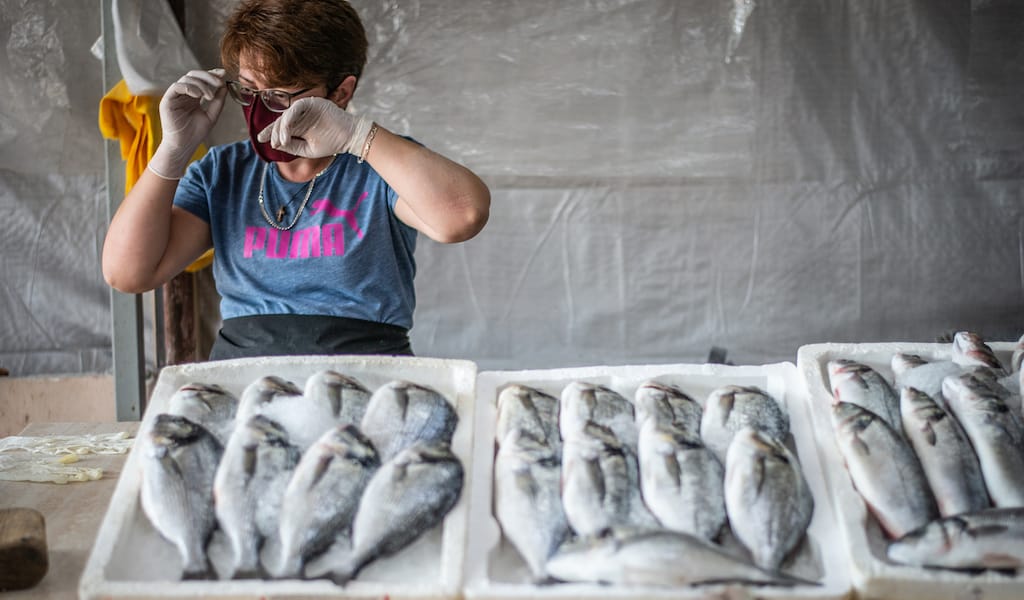Chat up the older residents of a Rio favela and you’re likely to start hearing romantic stories about Brazil’s northeast: those colorful cajú and mangaba fruit trees, the clear turquoise ocean, the folksy and upbeat forró music, chewy tapioca sandwiches and cakes. Brazilians call that saudades – a longing for something lost, which may or may not exist in the form one dreamily remembers it. These are the pleasant memories many northeastern immigrants hold amidst the urban hustle of crowded Rio de Janeiro, where a working-class Brazilian knows the beach exists but easily lives a hot two-hour bus ride away from it.
Mid-20th-century migration waves of northeastern Brazilians forever changed the demographics and culture of Brazil’s southeastern urban epicenters Rio and São Paulo. Many settled in the favelas (unplanned settlements) around the city, where now a fifth of Rio residents call home. Many thrived and now take beach resort vacations back to their ancestors’ lands, an area long regarded as Brazil’s arid and “get-out-if-you-can” impoverished corner.
Though many Brazilian states contributed to this migration wave – Ceará, Pernambuco, Piauí, Bahia and more – Paraíba has become the prototypical northeasterner in the eyes of Rio’s cariocas. “I hired a paraibana as a nanny,” you may hear a new mother in the condominiums of Ipanema comment. Upon hearing that characteristic droll accent and slow way of speaking, many Brazilians will crack smiles and jokes about those adorable paraibanos.
But times are changing, and so is the Brazilian dream. Many a migrant whose family tried their chances in the big cities is now returning to the northeast for a series of reasons, if not richer in their pockets, then rich in experiences and miles traveled. On a recent trip to Paraíba, we met countless returnees from Rio. One had been a doorman’s wife, another a metro station janitor and her daughter, a prostitute.
Among the many ways they forever changed the course of Rio and São Paulo’s cultural histories, they introduced a class of rich and rustic dining heavy on butter, cream, starches and dried beef that has long been a favorite of the cities’ palates. Inviting friends out for a northeastern buffet is akin to saying: “Tonight, we’re going to chow down.” These are a few of our favorite places to eat in João Pessoa, the Paraíba capital.
 Mangai
Mangai
Located two blocks in from the pretty Manaíra beach in João Pessoa, this is the Golden Corral of northeastern cuisine. The most enthusiastic eaters are paraibanos themselves, who consider the exuberantly decorated restaurant a highly appropriate place to celebrate a birthday. Embracing a rustic aesthetic, the restaurant has walls decorated with bananas and a dining room interspersed with white tree trunks that have small bags of coffee, corn and beans hung on them. Waiters and waitresses dress as Lampião and Maria Rica, iconic roving bandits in the northeast who now are considered folk heroes.
Mangai’s buffet offers many permutations of Paraíba’s best ingredients. We liked the pineapple grilled in butter, creamed corn (munguzinha doce) and the sun-dried beef in cream sauce.
 Sorvetes Delícias do Cerrado
Sorvetes Delícias do Cerrado
Jackpot. This is the Brazil foreigners and Brazilians alike dream of, with dozens of exotic fruit and sweet flavors. Many of the fruits are from Brazil’s cerrado, a tropical savannah eco-region that stretches through the country’s interior. We tried the jabuticaba (a richly flavored purple fruit similar to a grape with a large pit), the tapioca, which includes chewy beads, and tangy orange taperebá. It’s self-service, so you can pay by weight and then stroll out through the arts and crafts fair toward the boardwalk along the Tambaú beach.
 Muxima Brasil
Muxima Brasil
A treasure in a location as charming as it is unlikely. Paraibana Aline de Oliveira, married to Alexandre Caravana das Neves, a Portuguese man who lived in Angola, also a former Portuguese colony, opened this Angolan-Brazilian restaurant two years ago along the beach in the Penha fishermen’s village. The name comes from a Catholic church called Muxima, which means “heart” in the Kimbundo dialect spoken in Angola, and is a sacred place of pilgrimage about three hours from Luanda, the country’s capital. We’re told the area the restaurant is in was known beforehand both for the steady sound of machetes chopping up the day’s catch and a weekly rowdy forró dance party. A covered patio with an open view of the beach, Muxima is the kind of place where people come in to eat with sandy feet and in Speedos. Aline recommended the muzumguê, a cooked fish served in an iron pot with manioc, purple sweet potato, okra and palm oil. Upon request, she also made us her inventive salad, which included spiced cabbage and greens and flavorful rice.
 Estaleiro
Estaleiro
This restaurant transports you to the cool breezes and quiet residences of the Ponto do Seixas, a beach and cliff that protrudes from the coastline just southeast of the main touristic corridor of Cabo Branco and Tambaú. Here the specialty is fish, with a small starter fish caldo (pureed stew) included. We had the pescada amarela (yellow fish) in a nutty-flavored cream sauce with salty queijo coalho cheese.
(Muxima Brasil photo by Taylor Barnes; all other photos by Lianne Milton)
Published on June 26, 2015
Related stories
July 26, 2013
AthensPiraeus holds the distinction of being Greece’s biggest port, as well as the largest passenger port in Europe. Although it is a mere 20-minute train ride from downtown Athens, most Athenians think of Piraeus with a reverence reserved for a foreign country. There is just something almost mythic about this ancient port, which has been…
October 6, 2023
Athens | By Ilias Fountoulis
AthensLet us begin with a little Greek mythology. Hermes – son of Zeus, god of thieves and commerce and messenger of Olympus – and Krokos, a mortal youth, were best friends. One day, while the two friends were practicing their discus throwing, Hermes accidentally hit Crocus on the head and wounded him fatally. On the…
August 30, 2021
TbilisiIn 2013, Anthony Bourdain and the Parts Unknown team arrived in Batumi, the capital of Adjara, to shoot the first segment of their Georgian adventure. The show’s producers invited Zamir Gotta, a Russian sidekick unfamiliar with the city, to join him. They visited a casino, strip club and mediocre restaurant for khashi, tripe soup, which…




















































































